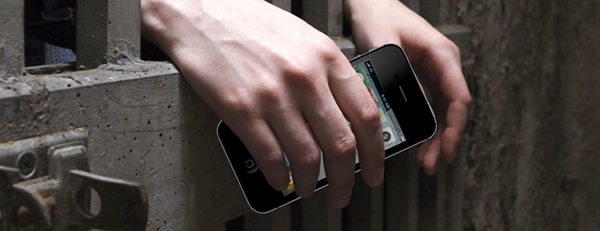Sina Khanifar, co-found of OpenSignal, has launched a campaign to "fix" the Digital Millennium Copyright Act. Interestingly, Khanifar is also the same person who authored a recent petition to legalize cellphone unlocking. His "We the People" submission was subsequently blessed with White House support shortly after it had surpassed 100,000 signatures.

FixTheDMCA.org begins by posing the question, "Think you own the electronics you buy?". It then informs visitors that they may own the device, but not necessarily the software installed on it.
FixTheDMCA.org is calling upon congress to make changes which will unban the following:
- Unlocking cell phones, regardless of contract status
- Jailbreaking phones, tablets, game consoles, and other electronics
- Screen reading software for the blind
- Software and hardware modifications and repairs to products that have been legally purchased
The DMCA, a bill drafted in 1996 and updated in 2000, prohibits the circumvention of any mechanism intended to restrict access to a digital device, media or software. Unauthorized modifications which require bypassing a protection scheme (no matter how flimsy it may be) – like unlocking a cell phone or a game console for example – can be a criminal violation of the DMCA.
Khanifar notes that the punishment for unlocking a cell phone can be as much as a $500,000 fine and five years of jail time.
However, the bill does allow for specific exemptions to its otherwise blanket-ban on gaining such unauthorized access. The U.S. Library of Congress, a non-elected government body, is bestowed the power to grant such exceptions to the DMCA's anti-circumvention provision.
Since 2010, jailbreaking has been legal on smartphones. Yet, the practice remains illegal on tablets (i.e. big smartphones) and game consoles. Meanwhile, unlocking phones continues to be banned sans a brief 2012 intermission. However, the practice was re-banned following the LoC's failure to renew its short-lived exception. Inconsistencies like these cause some to question the LoC's role in the DMCA.
"Wondering why the Librarian of Congress, a non-elected official, gets to make these decisions?", Khanifar asks rhetorically. "It's the same reason that visually impaired people need to ask for an exemption every 3 years to be able to use screen reader technology for ebooks ..."
At the bottom of the page, visitors are presented with tools to engage Congress and their social network in making changes to the DMCA.
Supporters of Khanifar's message thus far include the Electronic Frontier Foundation, O'Reilly, Mozilla, Reddit and numerous others.